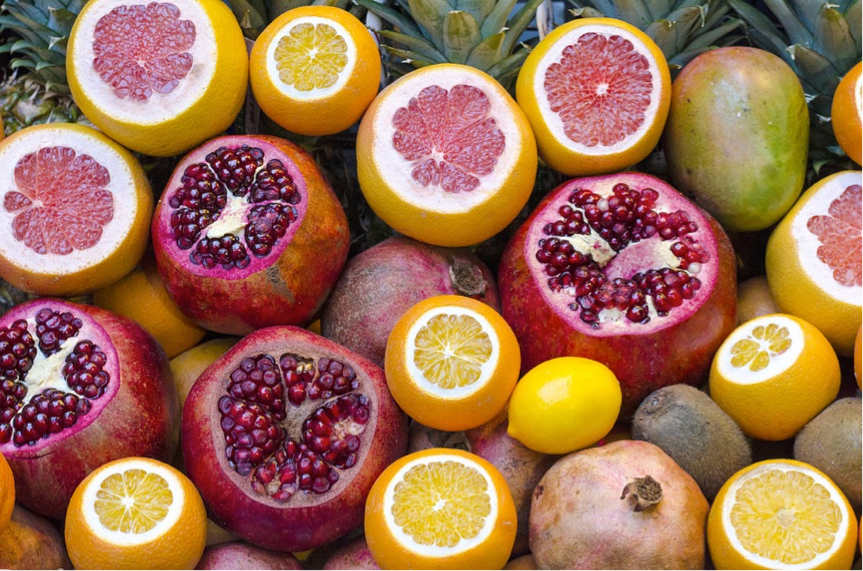Lutein complex with blueberries & zinc
Lutein represents naturally occurring carotenoid, i.e. plant pigment, found in green in yellow vegetables. It is well known for its antioxidant activity, and consequent health effects, most of which have been related to eyes and vision. Still, due to its free radical capability lutein can be applied in prevention/treatment of many oxidative stress-related conditions.
Phenolic compounds represent another group of strong dietary antioxidants with numerous health activities. Blueberries are very rich in phenolics, more precisely in anthocyaninins, which give blueberries the color.
Zinc is an essential trace element, which means it is needed in very small amounts for proper human health. Zinc supplements can be used for treatment of eye disease and boost of immunity, but zinc can also help in regulation of insulin, diabetes and high blood pressure.
Vision and eye health
A recent, randomized, placebo controlled study investigated impact of lutein supplementation on vision function in patients with diabetic retinopathy, a common compilation of diabetes affecting eye health. 31 patients were included and assigned to receive either lutein or placebo for 31 weeks. Several indices of visual performance were measured at baseline, week 18 and 36. At the end of intervention, i.e. the week 36 lutein, in comparison with the placebo, caused significant improvement in visual function (expressed as improvement in contrast sensitivity).1
Dry eye syndrome is a chronic condition which negatively affects visual function, work productivity and overall quality of life. The primary aim in treatment of this condition is to alleviate the symptoms, restore the tear film and improve patents comfort and visual acuity. A recent intervention trial investigated impact of standardized blueberry extract consumption on dry eye symptoms. 22 otherwise healthy subjects with dry eye syndrome were assigned to receive either blueberry preparation or placebo for 4 weeks. In comparison with the placebo group, blueberry extract attenuated symptoms of dry eye, more precisely in the supplemented group secretion of tears significantly increased (for right eye and mean value of both eyes).2
Age related macular degeneration is one of the most common causes of vision loss in elderly. A wide range of nutrients, including microelements (such as zinc) and carotenoids (such as lutein) were associated with reduction in risk of age related eye diseases. As stated in recent review on available data, supplementation with zinc and carotenoids seems to correlate with reduced risk of age related macular degeneration progression.3
References:
- Zhang PC, Wu CR, Wang ZL, et al. Effect of lutein supplementation on visual function in nonproliferative diabetic retinopathy. Asia Pac J Clin Nutr. 2017;26(3):406-411.
- Riva A, Togni S, Franceschi F, et al. The effect of a natural, standardized bilberry extract (Mirtoselect®) in dry eye: a randomized, double blinded, placebo-controlled trial. Eur Rev Med Pharmacol Sci. 2017;21(10):2518-2525.
- Gorusupudi A, Nelson K, Bernstein PS. The Age-Related Eye Disease 2 Study: Micronutrients in the Treatment of Macular Degeneration. Adv Nutr. 2017;8(1):40-53.
Immune system
Zinc is strongly related with the regulation of immune system. The effects of zinc supplementation on immune system in nursing home elderly was investigated in one placebo controlled study. 31 subjects were assigned to receive zinc supplementation or placebo for 3 months. At baseline and at the end of intervention serum zinc levels were measured, along with the function of T cells (T lymphocytes, important for cell-mediated immunity), known to decline with ageing. 3 months of zinc supplementation resulted in significant increase in zinc levels in blood accompanied with increase in number of T cells, supporting the use of zinc as immunity booster. This effect was significant in comparison with the placebo.1
One double-blind, randomized placebo controlled trial investigated effects of fruit and vegetable powder concentrate, rich in lutein, on immune function. 59 students were allocated to receive either this powder or placebo for 77 days. At the end of intervention, lutein (among other carotenoids) concentration increased significantly in the blood of supplemented subjects. In addition, activity and number of T cells significantly increased in comparison with the placebo.2
Effects of blueberry on immune system were investigated in placebo controlled study in which participants (aged 18 to 50 years, both males and females) consumed blueberry powder (equivalent to 250 grams of berries) or placebo for 6 weeks. As a result, blueberries increased activity of natural killer (NK) cells, a type of lymphocytes critical for the function of innate immune system.3
References:
- Barnett JB, Dao MC, Hamer DH, et al. Effect of zinc supplementation on serum zinc concentration and T cell proliferation in nursing home elderly: a randomized, double-blind, placebo-controlled trial. Am J Clin Nutr. 2016;103(3):942-51.
- Nantz MP, Rowe CA, Nieves C Jr, Percival SS. Immunity and antioxidant capacity in humans is enhanced by consumption of a dried, encapsulated fruit and vegetable juice concentrate. J Nutr. 2006;136(10):2606-2610.
- McAnulty LS, Collier SR, Landram MJ, et al. Six weeks daily ingestion of whole blueberry powder increases natural killer cell counts and reduces arterial stiffness in sedentary males and females. Nutr Res. 2014;34(7):577-584.
